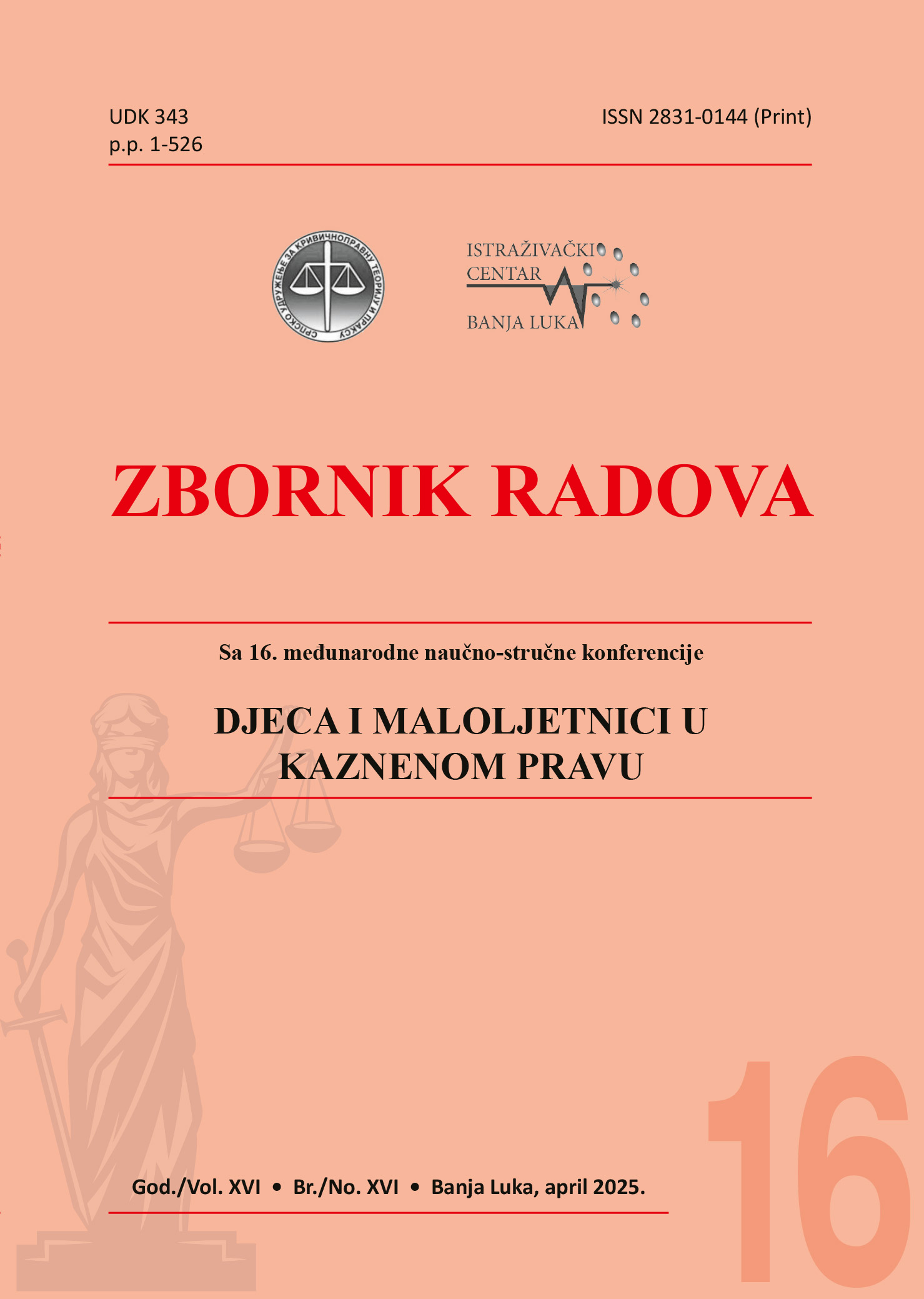JUVENILE CRIMINAL SANCTIONS IN COMPARATIVE LEGISLATION
DOI:
https://doi.org/10.7251/CEST1625048MKeywords:
juveniles, juvenile criminal sanctions, educational measures, juvenile prison sentenceAbstract
Juvenile criminal sanctions represent the law-prescribed measures of social response to juvenile perpetrators of criminal offenses imposed by law-defined authorities with the aim to protect society from crime through education, re-education and proper development of minors. A minor cannot be imposed a criminal sanction for a criminal offense that has not been defined by the law as a criminal offense before it was committed, nor can a criminal sanction be imposed that has not been prescribed by the law as a criminal sanction before the criminal offense was committed. Their purpose is to suppress criminal acts that violate or endanger values protected by criminal legislation, that is, to suppress all types and forms of juvenile delinquency. Almost all modern criminal legislation has a special system of juvenile criminal sanctions in their system of criminal sanctions that is largely based on the standards set by international legal acts (adopted within and under the auspices of a universal organization - the United Nations, or a regional organization - the Council of Europe). In comparative legislation, educational measures are unavoidable juvenile sanction. In addition, a significant number, especially of European countries, foresee the penalty of juvenile imprisonment in their legislation, as well as a number of security measures. Alongside to juvenile sanctions, we should certainly not forget a series of sui generis measures, i.e. alternative measures that are imposed to these perpetrators of criminal offenses.
